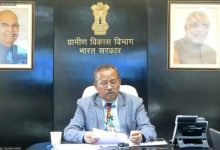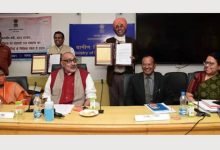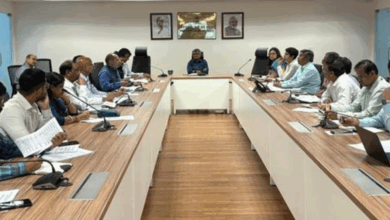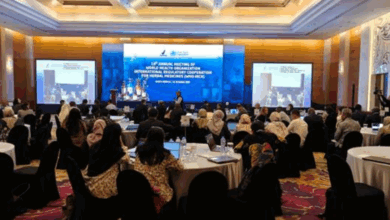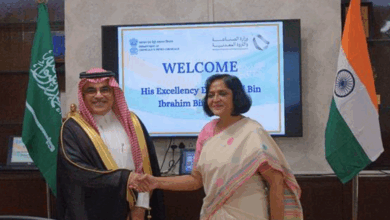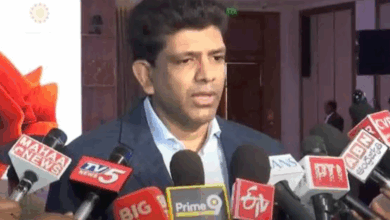Geographical Information System (GIS) plans for around 75% Gram Panchayats completed
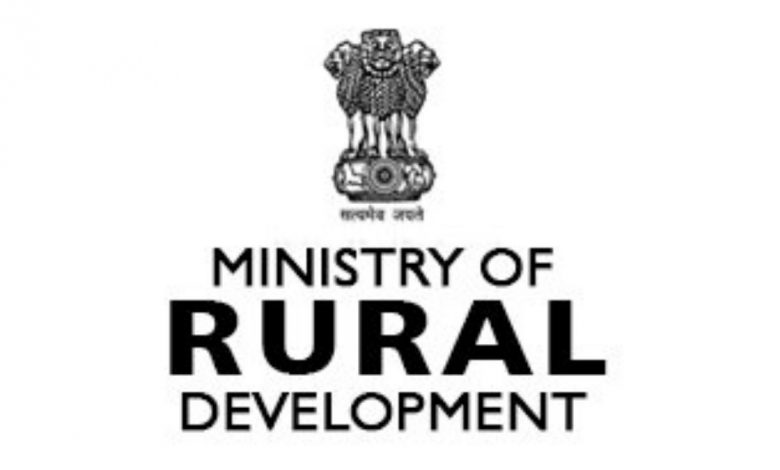
Ministry of Rural Development reaches an important milestone with the completion of GIS plans for 2 lakh Gram Panchayats (GPs) out of 2.69 lakh GPs under Mahatma Gandhi NREGA
- Contributions of Mahatma Gandhi NREGS have enhanced significantly by using the GIS-Based Planning approach and impacts of which are visible at ground level
- CRISP-M tool, which will further enable the local communities to understand the impact of changing climate and make smart decisions on them
- Yuktdhara Geospatial Planning portal helps the other Ministries to see the geographical location of planned assets on a map, which integrates planning for works, optimises convergence plans and facilitates effective monitoring
The Ministry of Rural Development has reached an important milestone with the completion of Geographical Information System (GIS) plans for 2 lakh Gram Panchayats (GPs) out of 2.69 lakh GPs under Mahatma Gandhi NREGA using remote sensing technology based on the ridge to valley approach. GIS-based planning under Mahatma Gandhi NREGS is an initiative of the Ministry of Rural Development which helps the Gram Panchayat to ensure a scientific & holistic approach for planning at the Gram Panchayat level. It is an important tool to ensure participatory planning at the implementation level.
The Ministry has provided detailed training on usage of GIS & RS (Remote Sensing) technology to Mahatma Gandhi NREGS functionaries of States/UTs through the initiative of the Ministry and NIRDPR (National Institute of Rural Development and Panchayati Raj). Thereafter, all the States/UTs prepared 4 GIS-based plans of GPs per block in FY 2020-21 as pilots, which was extended to all GP’s after successful completion.
Contributions of Mahatma Gandhi NREGS has enhanced significantly by using the GIS-Based Planning approach and impacts of which is visible at ground level. The development of quality assets at the Gram Panchayat level has been taking place through proper planning and decision making.
Mahatma Gandhi NREGS has always emphasized Natural Resource Management (NRM) based planning to enhance the livelihood and NRM resource base in rural areas. The systematic development of land, harnessing of rainwater following watershed principles (Ridge to Valley Approach) and creation of income-generating assets has become an important aspect of Mahatma Gandhi NREGS works. The planning of works under Mahatma Gandhi NREGS are now carried out using advanced technologies viz. Geographical Information System (GIS) and Remote Sensing (RS). Leveraged for this purpose is the much acclaimed ‘Bhuvan’ space technology solution from the National Remote Sensing Centre (NRSC) of the Indian Space Research Organisation (ISRO).
To further facilitate Gram Panchayat level planning of Mahatma Gandhi NREGS activities across India, Yuktdhara Geospatial Planning portal has been developed on Bhuvan Platform by National Remote Sensing Centre (NRSC), Indian Space Research Organization (ISRO) under the guidance of Mahatma Gandhi NREGA division MoRD. This planning portal also helps the other Ministries and Departments to see the geographical location of planned assets on a map in the web management system, which integrates planning for works, optimises convergence plans and facilitates effective monitoring of the implementation of works and creation of assets.
The Ministry is also working towards integrating climate data with the above data through a joint initiative with FCDO of the UK, known as CRISP-M, which will further enable the local communities to understand the impact of changing climate in terms of various geophysical parameters and make smart decisions on them. This is initially proposed to be taken up in seven states viz. Bihar, Jharkhand, Odisha, Madhya Pradesh, Uttar Pradesh, Chhattisgarh and Rajasthan and will be expanded later to all other states as well.
Geographical Information System (GIS)
The GIS is a computer-based tool for mapping and analyzing the geographic terrain and offers scientific choices of development works suitable to the area. This technology integrates common database operations such as query and statistical analysis with the unique visualization and geographic analysis benefits offered by the maps.
Disclaimer : This is an official press release by PIB.

